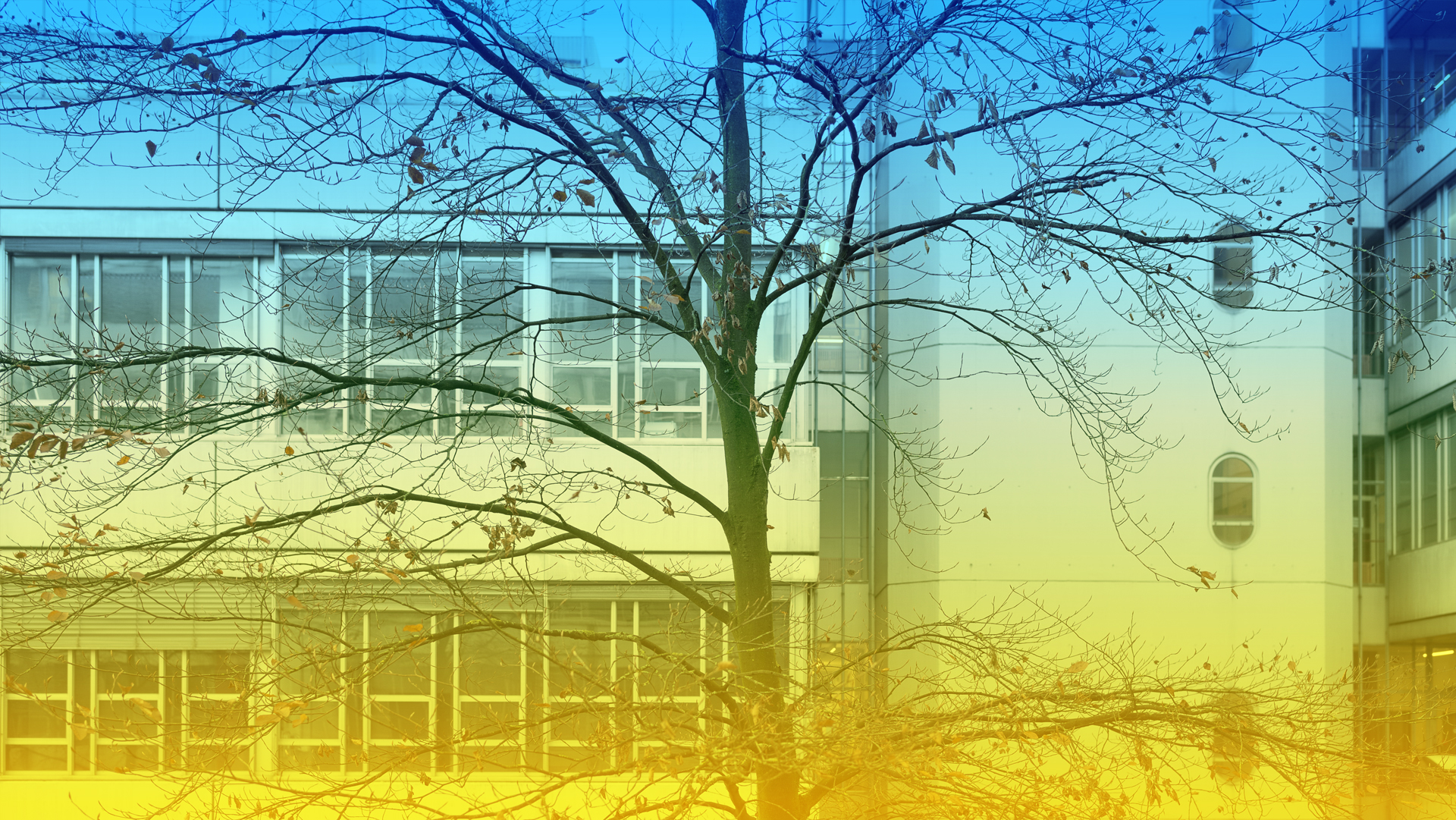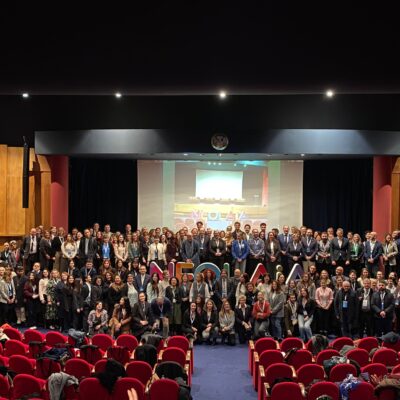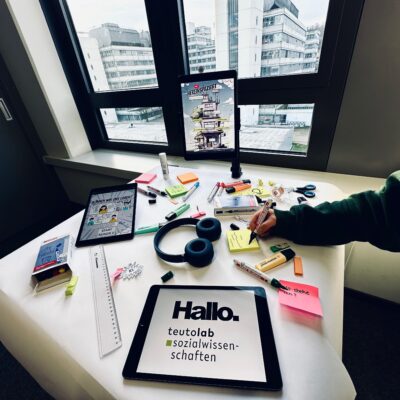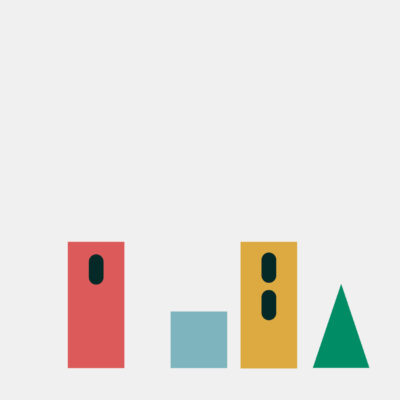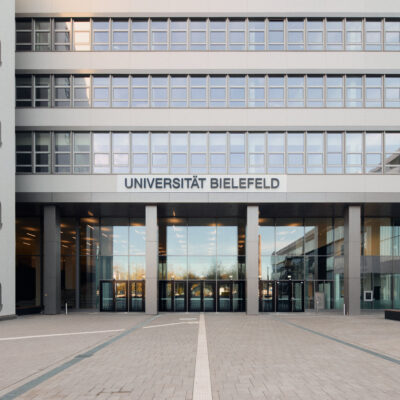Most of the written information we receive from Ukraine is in the form of media reports. Ukrainian authors are doing their part and writing chronicles of everyday life during the war. Dr Matthias Buschmeier is a German scholar at Bielefeld University’s Faculty of Linguistics and Literary Studies. He explains how war forces authors to position themselves and what their texts contribute to the further development of society.
Ukrainian author Serhiy Zahdan has published a book containing a collection of social media dispatches. Sky Above Kharkiv describes everyday life in a metropolis at war. Is this what we would call war literature?
Zahdan attempts to juxtapose his Facebook texts with a traditional literary concept. In the traditional sense of literature, this is something like a remodelling of reality. War literature usually conforms to such an approach: it is often memoir literature that gives retroactive meaning to the experience of war, which is usually viewed as having been meaningless. Zahdan’s intention is to be a chronicler of daily events. However, the immediacy of recording and publishing on the Internet is not just a strategy. For him, the experience of war refuses to be shaped into literature in the above-mentioned sense. Publication of the book makes this project exciting, because as soon as the author changes the medium—from the Internet to a book—the character of the writing changes. The ensemble of texts is now perceived as literature, whether the author wants it to be or not.
How do war literature and historiography relate to each other?
War literature must draw on a historical reality in order to give it substance. If you want to draw readers into such a narrated world, it has to be accurate, otherwise they would quickly reject it. War literature is also an attempt to depict an out-of-the-ordinary situation. Historiography must write more objectively. Literature has the licence to exaggerate subjectively. This means that literature can also provoke dominant national narratives of historiography and stimulate new interpretations. As a result, war literature and historiography may conflict with each other.
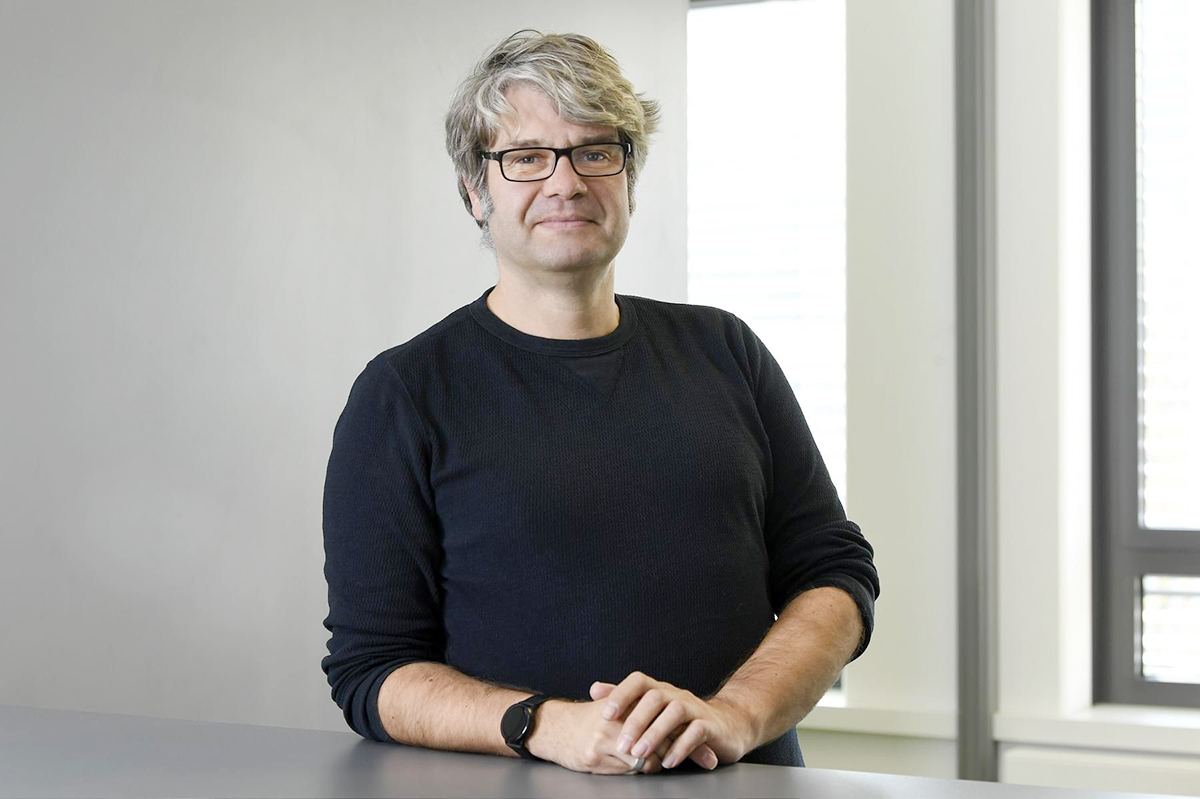
© Bielefeld University
To what extent does the self-image of a Ukraine that is independent of Russia emerge in its literature?
I’m honestly no expert on Ukrainian literature. But the beginning of a war creates a new situation that calls for clear distinctions. We see this phenomenon in a lot of wars and conflicts. Intellectuals also have to position themselves—either for or against. For example, Zahdan is surprised to find that he is suddenly writing sentences that would never have flowed from his pen a year ago. Very martial phrases such as ‘Death to all invaders’; but they are an effect of these clear distinctions. This could not yet be seen in Zahdan’s novel Boarding School (2017). Indeed, the novel demonstrates this clearly in the way he incorporates Ukraine’s bilingualism into his own text. Is it still possible to speak and write in Russian as a Ukrainian author? Does language become complicit, as it were? With Russia’s renewed invasion of Ukraine, these nuances, which could still be heard after 2014, have disappeared.
You raise the issue that literary institutions in Ukraine have called for a boycott of Russian books. What impact does a war have on a country’s culture?
It is understandable that people want to shut out the language of their invaders. There has always been a denigration of the enemy’s culture: French writers were derided by the Germans as frivolous and decadent, especially in the context of the First World War. However, the cultural elites in mainstream culture were still so inextricably linked that boycotts did not take place. Even in the Second World War, we see how German writers played a significant role in exile and were also used to advantage by the Allies, although German culture—Romanticism, Nietzsche, Wagner—was already described at that time as an intellectual path to the Nazis. Boycotts put pressure on an entire culture, not just on individuals. Ukraine is a country that has spoken both Russian and Ukrainian for a very long time, and its culture has accordingly been nourished by both. A boycott runs the risk of depriving such a multilingual culture of a piece of its own heritage and, in its desire to distance itself from them, of turning the invaders’ aggression against itself.
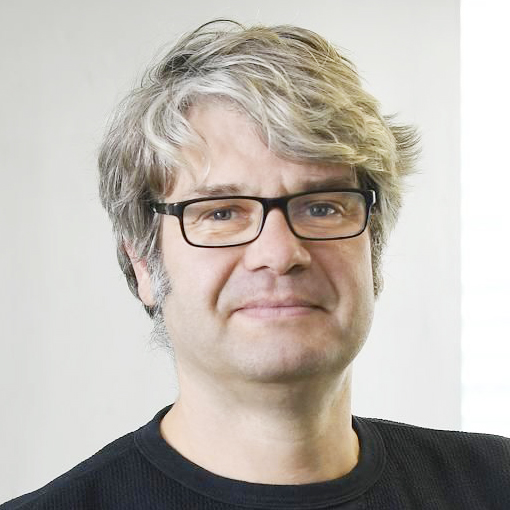
© Bielefeld University
We also have occupation literature in addition to war literature. How do the two genres differ?
War literature usually depicts specific battles and their impact on the civilian population and soldiers. Occupation literature describes the aftermath of the fighting. The population finds itself in a constant state of moral dilemma—on a spectrum ranging from collaboration to resistance. The occupiers and the occupied form a society made up of a complex network of relationships. Readers of occupation literature from such countries are much more likely to understand today’s Baltic reaction to Russia’s aggression: their fear of being annexed into the Soviet Union by Stalin in the period after the First World War was so great that the Germans were initially seen not only as an occupying power, but also as a defender against Stalin. The Soviet occupation spanned more than 40 years, whereas the German occupation didn’t last much more than a year—albeit with devastating consequences for the Jewish population. Ergo, the way in which the subject of occupation is dealt with is different from that in France, for example. In France, German occupation lasted just under four years, after which the nation was able to celebrate the fact that it had liberated itself (with help). The crossfading of different occupation realities is fascinating.
How can literature help to contextualize today’s situation and make it easier to understand?
I think it makes us peaceful Europeans more tangibly conscious of the situation in Ukraine. As a medium of the imagination, literature is perhaps even more powerful in this respect than media reports or films. But literature always offers a possibility to distance oneself and reflect; it rarely follows a pure aesthetic of being overwhelmed. Interest in the period of occupation is so great in contemporary literature because it sheds new light on the long-term scars that occupation inflicts on a society and it affords fresh perspectives on it. These changing mind-sets over the years are important for an evolving society. Literature provides interpretations of meaning and the world that are subject to negotiation in society.
Is the writing of war and occupation literature also a way of coping with trauma?
War literature is written predominantly by men who have often been in combat themselves: Erich Maria Remarque, Ernst Jünger, Gerd Ledig, and Heinz Konsalik. By contrast, especially nowadays, occupation fiction has more women writers such as Finland’s Sofi Oksanen or Belgium’s Els Beerten. War literature is often assumed to be an individual’s way of coping with trauma. However, authors don’t write directly out of a traumatic experience, as it were. Their texts are extrapolated, crafted, and aestheticized. If anything, war literature portrays traumatized characters. Whether the authors also derived a therapeutic effect from their writing can only be answered by the individuals themselves and is not really a literary question. It is often argued, however, that war literature is a strategy for coping with the collective trauma of a nation or a particular group. But it would be far too presumptuous—and, for me, rather questionable—to extrapolate an individual experience and theory such as that of trauma to a whole society.
About this series
In these interviews, academics at the university explain their assessment of the war in Ukraine from the perspective of their own disciplines. Previously published interviews:
- Professor Dr Andreas Zick (25.03.2022): ‘We need to know where more violence is brewing’
- Professor Dr Frank Grüner (31.03.2022): ‘Putin is distorting history for his own ends’
- Professor Dr Véronique Zanetti (14.04.2022): ‘A nuclear war must be avoided at all costs’
- Dr Leif Seibert (23.05.2022): ‘Putin and Kirill benefit from mutual legitimation’
- Assistant Professor Dr Julian Hinz (14.06.2022): ‘Russia has gambled away its economic future’
- Professor Dr Christina Morina (21.07.2022): ‘The Eastern European perspective has been neglected for too long’
- Professor Dr Antje Flüchter (21.10.2022):‘Comparing with the Holocaust is relativizing history’
- Professor Dr Peter Bernard Ladkin (14.11.2022): ‘The Hollywood image of hackers is misleading’
- Professor Dr Andreas Vasilache (11.11.2022): ‘The EU has responded to crises with deeper integration’
